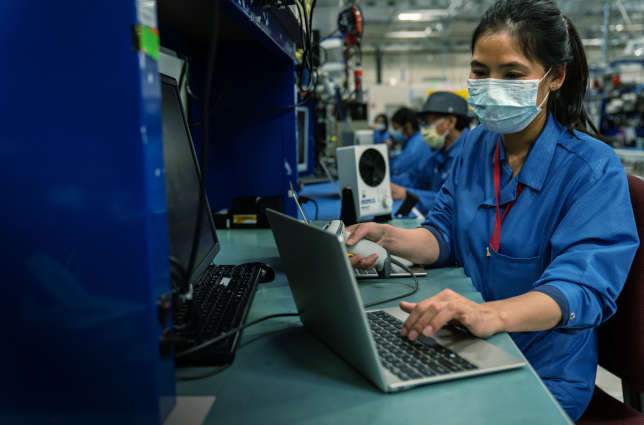900 San Diego Students to Get Always-Connected PCs
- By Dian Schaffhauser
- 07/08/20
A
grant from Qualcomm
Technologies,
a San Diego-area company, will enable the San
Diego Unified School District
to deploy 900 new personal computers to students. What's unique is
that the units have built-in cellular connectivity. The company has
also committed to a one-time $141,000 donation to cover the cellular
connectivity costs for the devices.
Since
the closure of school facilities in the face of COVID-19, the
district has distributed about 50,000 district-owned devices to
students, to enable them to participate in remote learning.
The
latest models include a Qualcomm chipset — the Snapdragon — which has the cell connectivity built in as a standard feature,
enabling users to remain connected without WiFi.

Qualcomm's donation to the San Diego Unified School District features the company's Snapdragon
chipset, which provides for cellular connectivity. Source: Qualcomm
Technologies
The
grant will be presented to the district's board of education later
this summer. Once approved, the district will develop a plan to
distribute the "always connected" PCs.
This
isn't the first time Qualcomm has worked with the district.
Previously, the company ran a program to help prepare students for
careers in tech by installing a Qualcomm
Thinkabit Lab
at their corporate headquarters and in several schools throughout the
county. The labs allow students to do hands-on activities in
engineering to help them experience STEM and to help educators learn
how to engage students in STEM.
"We
are deeply committed to closing the connectivity gap," said
Superintendent Cindy Marten, in a statement. "While we continue
advocating for additional state and federal support, Qualcomm has
stepped up and shown why San Diego really is America's finest city.
This partnership goes a long way at supporting our students and
teachers."
About the Author
Dian Schaffhauser is a former senior contributing editor for 1105 Media's education publications THE Journal, Campus Technology and Spaces4Learning.